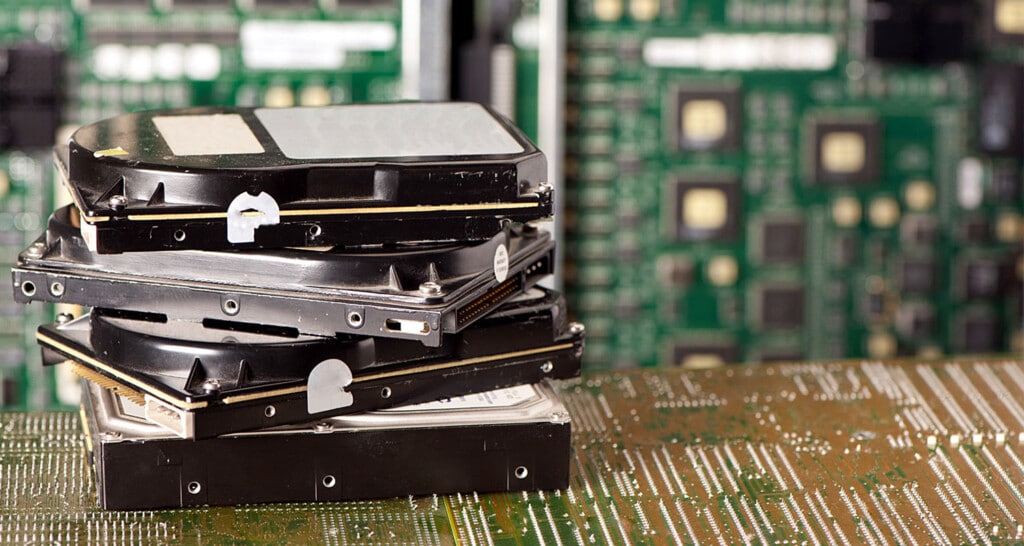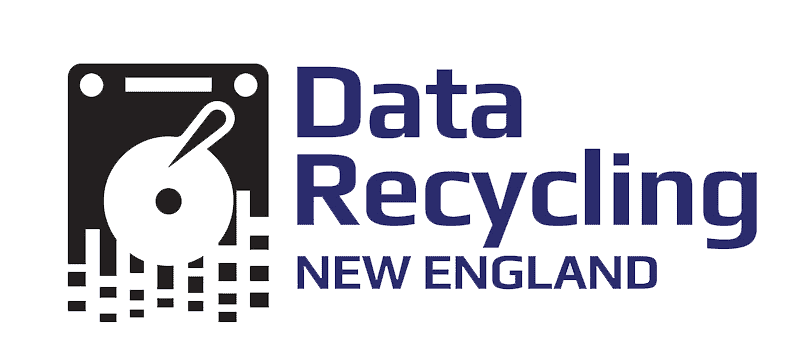Did you know that in some municipalities the instant an item is thrown into a dumpster or trashcan that’s located outside it legally becomes available to whomever is willing to go in and get it? And, of course, whether it’s legal in that area won’t stop someone from going after something they really want – in most areas the penalty for removing something from someone’s trash is only a $1,000 to $2,000 fine. An individual or organization would have to be charged with a criminal act that resulted from the dumpster-diving (such as opening a credit card bill and committing identity theft using the information on the bill) in order for them to face a severe penalty.
With that information in mind, it should become quite clear that a trash bin or dumpster isn’t the best method to employ for corporate data destruction of important or confidential materials, and in today’s digital age those materials include computer hard drives and other types of electronics.
For organizations of all sizes – whether they’re operating as a sole-proprietor or a multi-national conglomerate – there is bound to be a time when their hardware or infrastructure is updated and new equipment is moved in. In these instances, it is imperative that the old equipment is disposed of in the proper manner to eliminate the possibility of confidential information falling into the hands of identity thieves, hackers, or the competition.

It may be tempting to simply put old PCs and laptops in a storage room somewhere and forget about them, or save them as an “emergency backup,” but the reality of the situation is that you could be leaving important data in an unsecure setting and that you’ll eventually run out of space to keep storing the equipment.
So, if you can’t store the old equipment forever and you can’t just throw it in the trash how can you safely and securely dispose of it so that your data – whether personal or business related – isn’t falling into the wrong hands?
The best thing to do is to completely erase the data from the hard drive and then have it professionally destroyed.
There is a common misconception that when you delete files from your computer you’ve made them permanently inaccessible – this isn’t true. When you delete files from your computer you’ve simply hidden them from yourself and anyone who is using that piece of equipment in a normal manner – but they still exist on your hard drive and can be retrieved using special software. To ensure that your data has been erased completely from existence, you’ll want to wipe the hard drive. There are quite a few ways to accomplish this using programs and software, but at Data Recycling New England we offer our customers three separate methods of erasing and destroying their data, all of which come with certificates of completion.
The first method – Complete Information Destruction – will completely wipe your hard drive and recycle it so that it doesn’t end up in our landfills. The second – Complete Hard Drive Destruction – entails not only wiping your hard drive, but physically shredding it before sending it off for recycling. This option is ideal for those who have a small number of hard drives that contain very sensitive information. The third option – On-site Hard Drive Destruction – is designed for organizations that have a large number of hard drives to dispose of, such as schools, colleges, or hospitals. With this method, we’ll bring our mobile shredding unit to your location and physically shred every hard drive – you can even watch us do it!
